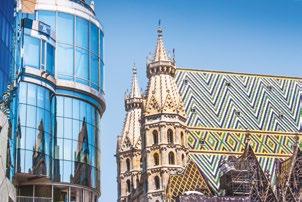




Dear members of the World Muscle Society, friends and colleagues,
Welcome to the 29th annual Congress of the World Muscle Society in Prague, Czechia.

This year, we return to Europe for the first time since the pandemic after two consecutive Congresses in continental North America. We’re excited to be able to share our scientific programme in one of the world’s most beautiful capital cities. If you are an in-person Congress delegate, we very much hope that you will find the time to see some of the sites in the city of a hundred spires.
If you’re joining WMS 2024 virtually, while you might not get to experience Prague, we have a busy and informative few days ahead. We have carefully selected this year’s themes to highlight the newest and most relevant science in the field of neuromuscular disorders. We’re particularly proud to be showcasing neuromuscular disorders around the world as our second theme. We have invited speakers from across the globe who will share the challenges and experiences of working on these rare diseases in countries where myology remains an emerging science.
The session will also be the first one in the history of the WMS to be live-streamed at a parallel event, the annual Congress of the German-speaking Paediatric Neurology Society (GNP-Jahrestagung) in Stuttgart. It was exciting that the GNP reached out to us to find out if we would be open to such an experiment. I hope that colleagues in Stuttgart can enjoy the presentations and even participate in the discussions afterwards.
Our programme features many of the highlights you have come to expect from a WMS Congress: lively discussions at the poster boards, informal networking at coffee breaks, and four days of the latest scientific and clinical developments in the field of neuromuscular disorders.
This year, we are also building on recent additions to our programme and the Congress experience. Once again, we are providing family-friendly, multi-faith and quiet rooms. Programme highlights include our Meet the Experts Lunch, our now well-established debate, and our Career Development session, which has a focus on engagement with industry.
On behalf of the Executive Board, I would like to thank our sponsors and exhibitors for their support in enabling this Congress to go ahead. I would also like to extend particular thanks to our Local Organising Committee, Programme Committee and Management Team for their hard work behind the scenes.
I very much look forward to speaking to as many of you as possible over the course of the Congress. I urge you all to take this opportunity to build new connections. Say hello to the people whose work you admire or whose career interests you. Our Society is at its strongest when we make our global work local.
With very best wishes,

Volker Straub WMS President
Dear delegates,
Welcome to Prague. It is our great pleasure to host you here in Czechia’s beautiful capital city.
The 29th annual Congress of the WMS is set to be the biggest yet. We have record numbers of registered delegates, submitted abstracts and poster presentations. We have also awarded record numbers of travel fellowships.
You can find the full programme in our app and your joining email will include details of the sessions you have selected.
This year we will cover three core topics:
• Topic 1 - Acquired muscle disorders
• Topic 2 - Neuromuscular disorders around the world
• Topic 3 - RNA in NMD: clinical insights, pathomechanisms and treatments
Each day a plenary session will be dedicated to the selected topics. Speakers will summarise the state of the field, covering clinical, molecular and other aspects.
A new addition to the Congress app and website this year is our Congress Guide. Whether you’re attending a scientific congress for the first time or haven’t been to a WMS Congress before, or if you just like to know what to expect in advance, our Congress Guide goes into great detail about every element of the Congress. We hope this will answer any questions you might have, though our team is on hand to help.
Another new initiative to help make the Congress content easier for you to access is our partnership with Wordly. Wordly provides live text and audio translation into a language of your choice. We trialled Wordly last year and those that used it found it incredibly helpful. To access Wordly, simply scan the QR codes posted around the venue and enjoy live translation. We hope it helps break down any language barriers.
When you arrive at the Congress on Tuesday 8th October, we hope you will join us at a networking reception to meet our Exhibitors and find out about the science education they will be presenting. We will serve drinks and light refreshments that have been carefully selected to support health and wellness.
We are proud to be supporting four local charities through our Legacy Tokens programme. In-person Congress delegates can vote for their favourite of the four with their token and we will share a donation of £10,000 between those good causes based on your votes. There is more information about how the Legacy Tokens programme works in the Congress Guide.
We would like to extend our thanks to the Executive Board for selecting Prague as the host city for the 29th annual Congress, to our fellow members of the Local Organising Committee and Programme Committee for their tireless efforts to ensure a successful event and to everyone involved in organising this year’s meeting. It has very much been a team effort!
With best wishes
Jana Haberlová, Radim Mazanec and Stanislav Vohánka

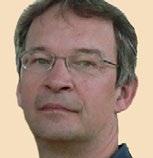

Co-chairs of the 2024 Local Organising Committee

The Prague Congress Centre has undergone substantial transformations in recent years, positioning itself as a contemporary venue equipped with the necessary technological advancements required for hosting international-scale events.
The Prague Congress Centre 5. května 1640/65, Nusle 140 00 Prague 4, Czechia Tel: +420 261 171 111
See all the venue information: https://praguecc.cz/en/homepage
Virtual Tour: https://praguecc.cz/en/panorama/0/index.html
Floor Plans: https://praguecc.cz/en/floor-plans

The Congress sessions will take place in the Congress Hall and lunch breaks will be served in the Exhibition HallCongress Hall Foyer 2 amongst the exhibition to create a good flow.
Poster boards will be set up in Congress Hall Foyer 2 and Congress Hall Foyer 3.
There will be Industry Theatres in South Hall 1 and South Hall 2 for the parallel Symposia.
Morning coffee and afternoon tea breaks will be served in the Foyers and Exhibition Hall.



See all the venue information: https://praguecc.cz/en/homepage Virtual Tour: https://praguecc.cz/en/panorama/0/index.html Floor Plans: https://praguecc.cz/en/floor-plans


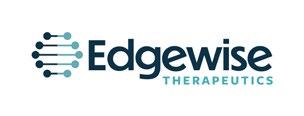


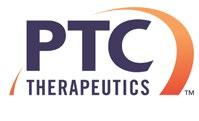


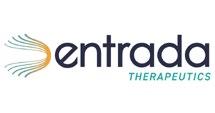

























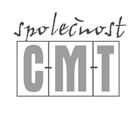
16:3017:30 WMS Industry Symposium 1 From Innovation to Patient Empowerment: The Pivotal Role of Complement

07:4508:45 WMS Industry Symposium 3 Assessing and managing DMD in an evolving treatment landscape

19:0020:00 WMS Industry Symposium 5 Time Matters: Preserving Function for Patients With Duchenne Muscular Dystrophy
WMS Industry Symposium 2
Understanding disease progression of Becker Muscular Dystrophy and a potential novel agent to protect muscle

WMS Industry Symposium 4
Gene Therapy Beyond Borders: A Global Exploration of Today’s Achievements and Unmet Needs, and Tomorrow’s Uncharted Territories

WMS Industry Symposium 6
Impact of disease-modifying therapies on bulbar function in children and adults living with SMA: Learnings and limitations
08:1509:15 WMS Industry Symposium 7 Potential of the FORCETM Platform to Address Unmet Needs in Rare Neuromuscular Diseases

WMS Industry Symposium 8
Emerging endpoints in Duchenne muscular dystrophy: From clinical trials to clinical practice
Please see: https://www.wms2024.com/page/industry-symposia for other information. All times are in local Prague, Czechia (CET) time.
SYMPOSIUM AT THE 29th ANNUAL CONGRESS OF THE WORLD MUSCLE SOCIETY
SOUTH HALL 1, PRAGUE, CZECH REPUBLIC
TUESDAY 8, OCTOBER 2024 16:30-17:30
Achieving Valuable Outcomes in gMG: Evolution of Evidence and Experience with Ravulizumab
Experience From the Clinic: What Matters Most to gMG Patients?
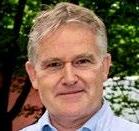
Dr. Schoser
Friedrich-Baur-Institut (LMU), Neurologische Klinik und Poliklinik, München, Germany

Dr. Zoulavou
National and Kapodistrian University of Athens Eginitio Hospital, Athens, Greece
These events are organised and funded by Alexion, AstraZeneca Rare Disease, and are intended for healthcare professionals only. Presentations will include data relating to complement component 5 inhibitor therapies, with a focus on generalised myasthenia gravis in adult patients who are anti-acetylcholine receptor antibody-positive. Product registration conditions differ internationally, and prescribing information may vary depending on approval in each country.
Please click here to access ULTOMIRIS Summary of Product Characteristics. The views expressed in these satellite sessions are based upon the clinical experience of the presenters. gMG, generalised myasthenia gravis.
ALEXION is a registered trademark of the AstraZeneca group of companies. Copyright© 2024, Alexion Pharmaceuticals, Inc. All rights reserved. CZ-6335 July 2024

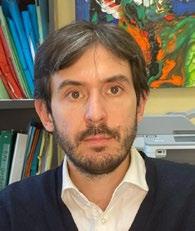

WEDNESDAY, 9 OCTOBER 2024 | 7:45–8:45 AM CET
Overview
With the development of new therapies in Duchenne muscular dystrophy (DMD), we are witnessing an evolution of disease management.
Join us for a one-hour symposium with an expert panel of clinicians, Professor Laurent Servais and Professor Ulrike Schara-Schmidt, who will discuss disease progression, recent advances within the treatment landscape, and key learnings from the introduction of gene therapy in spinal muscular atrophy.
Agenda
Welcome and Introduction
A Closer Look at DMD: Natural History and Evolving Treatments
The Clinical Implications of Treating DMD
Including Functional Assessment and Learnings from SMA
Q&A and Summary

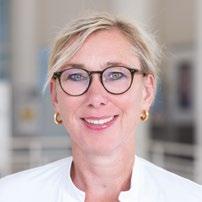
Laurent Servais
Professor of Paediatric Neuromuscular Diseases MDUK Oxford Neuromuscular Center Department of Paediatrics University of Oxford Oxford, UK
Ulrike Schara-Schmidt
Professor of Neuropediatrics and Neuromuscular Disorders, Department of Neuropediatrics, Children´s University Hospital Essen, University of Duisburg-Essen, Germany

Wednesday, 9 October, 2024
19:00–20:00 cet
South Hall 1
The Prague Congress Centre
Prague, Czechia
Please join us for an expert-led discussion on the management of Duchenne muscular dystrophy (DMD) from early to advanced stages of disease. This presentation will explore the natural history of disease progression, highlight the goal of functional preservation and dystrophin restoration.
Speakers

Francesco Muntoni, MD, FRCPCH, FMedSci Director, Dubowitz Neuromuscular Centre
UCL Great Ormond Street Institute of Child Health Great Ormond Street Hospital for Children London, United Kingdom SAREPTA THERAPEUTICS ’ INDUSTRY-SPONSORED


Ros Quinlivan, MBBS, FRCPCH, FRCP, MD Professor of Neuromuscular Disease, Centre for Neuromuscular Diseases
National Hospital for Neurology and Neurosurgery, UCL Institute of Neurology, London, United Kingdom
THERAPEUTICS,
WMS 2024 Industry Symposium sponsored by Roche
Wednesday, 9 October 2024 | 19:00–20:00 CEST
South Hall 2, Prague Congress Centre, Prague, Czechia
Hybrid symposium (in-person event with live video streaming)
Catering available from 18:30 CEST
Join us at our Industry Symposium at WMS 2024, where leading experts in neuromuscular diseases will explore the impact of disease-modifying therapies on bulbar function in children and adults living with spinal muscular atrophy (SMA) and share their experiences of case management, with a focus on best practices in relation to the assessment, treatment and rehabilitation of bulbar function.
Expert panel

Prof. Giovanni Baranello (Chair)
Dubowitz Neuromuscular Centre, UCL Great Ormond Street Institute of Child Health, London, UK
Agenda

Prof. Katlyn McGrattan University of Minnesota, Minneapolis, MN, USA
• Welcome and introduction: Clinical relevance of declining bulbar function in SMA
• Impact of disease-modifying therapies on bulbar function: What have we learned?
• Case discussions: Practical management of bulbar function
• Conclusions and audience Q&A
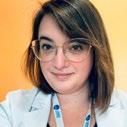
Dr. Giorgia Coratti
Università Cattolica del Sacro Cuore and Fondazione Policlinico Universitario Agostino Gemelli IRCCS, Rome, Italy
Visit us at the Roche booth (Stand 28) to learn more about our commitment to neuromuscular diseases and speak with our representatives!




Attaining an accurate diagnosis may be challenging due to this clinical overlap
Proximal muscle weakness is a hallmark symptom of a range of myopathies as well as of Lambert-Eaton myasthenic syndrome (LEMS). The presence of autonomic symptoms, low compound muscle action potential (CMAP) amplitudes, and reduced tendon reflexes, among other symptoms, can help differentiate LEMS from myopathy.1
Symptoms appear in middle adulthood
Tendon reflexes diminished or absent
inflammatory myopathies1,3,6,7
Mild, late-onset oculobulbar involvement Variable onset of symptoms Pain
High incidence of autonomic symptoms
Low compound muscle action potential (CMAP) amplitudes with an increase after post-exercise stimulation
High association with small cell lung cancer
Symmetrical proximal muscle weakness
Insidious symptom onset
Elevated creatine kinase
No autonomic dysfunction
Normal CMAP amplitudes
Take a look at how the clinical presentation of LEMS can often resemble other, more common, neuromuscular and neurological disorders.1,3
The average time before LEMS is diagnosed is ~4 years 2
Several factors contribute to the delay.
Symptom Onset
Symptom Onset
Slow progression of disease4*
Slow progression of disease3
Patients may not seek medical help immediately
Patients may not seek medical help immediately
Nonspecific and fluctuating symptoms4 make LEMS difficult to recognize
Nonspecific and fluctuating symptoms3 make LEMS difficult to recognize
Clinical presentations similar to other conditions1,4 often lead to diagnostic confusion
Clinical presentations similar to other conditions1,3 often lead to diagnostic confusion
In a clinical study, more than half of patients with LEMS received a different diagnosis.1,3
Anti-voltage-gated calcium channel (anti-VGCC) antibodies are found in 85% to 95% of people with LEMS.3 Catalyst Pharmaceuticals offers no-cost anti-VGCC antibody testing for patients who have symptoms suggestive of LEMS.
Learn more and request a free test.
References: 1. Merino-Ramírez MÁ, Bolton CF. Review of the diagnostic challenges of Lambert-Eaton syndrome revealed through three case reports. Can J Neurol Sci. 2016;43(5):635-647. 2. Harms L, Sieb J-P, Williams AE, et al. Long-term disease history, clinical symptoms, health status, and healthcare utilization in patients suffering from Lambert Eaton myasthenic syndrome: results of a patient interview survey in Germany. J Med Econ. 2012;15(3):521-530. 3. Titulaer MJ, Lang B, Verschuuren JJ. LambertEaton myasthenic syndrome: from clinical characteristics to therapeutic strategies. Lancet Neurol. 2011;10(12):1098-1107. 4. Sanders DB. Lambert-Eaton myasthenic syndrome: diagnosis and treatment. Ann NY Acad Sci. 2003;998:500-508. 5. National Organization for Rare Disorders (NORD) website. Rare disease database: LambertEaton myasthenic syndrome. Accessed October 18, 2023. https://rarediseases.org/rare-diseases/lambert-eaton-myasthenic-syndrome/. 6. Mantegazza R, Bernasconi P. Inflammatory myopathies: dermatomyositis, polymyositis and inclusion body myositis. In: Madame Curie Bioscience Database [Internet]. Austin (TX): Landes Bioscience; 2000-2013. 7. Paganoni S, Amato A. Electrodiagnostic evaluation of myopathies. Phys Med Rehabil Clin N Am. 2013;24(1):193-207.


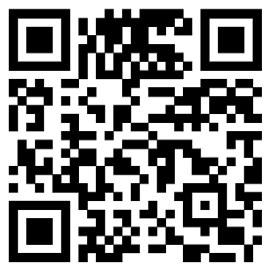



WEDNESDAY, 9 OCTOBER 2024 | 7:45–8:45 AM CET
Overview
With the development of new therapies in Duchenne muscular dystrophy (DMD), we are witnessing an evolution of disease management.
Join us for a one-hour symposium with an expert panel of clinicians, Professor Laurent Servais and Professor Ulrike Schara-Schmidt, who will discuss disease progression, recent advances within the treatment landscape, and key learnings from the introduction of gene therapy in spinal muscular atrophy.
Agenda
Welcome and Introduction
A Closer Look at DMD: Natural History and Evolving Treatments
The Clinical Implications of Treating DMD Including Functional Assessment and Learnings from SMA
Q&A and Summary


Laurent Servais
Professor of Paediatric Neuromuscular Diseases MDUK Oxford Neuromuscular Center Department of Paediatrics University of Oxford Oxford, UK
Ulrike Schara-Schmidt
Professor of Neuropediatrics and Neuromuscular Disorders, Department of Neuropediatrics, Children´s University Hospital Essen, University of Duisburg-Essen, Germany

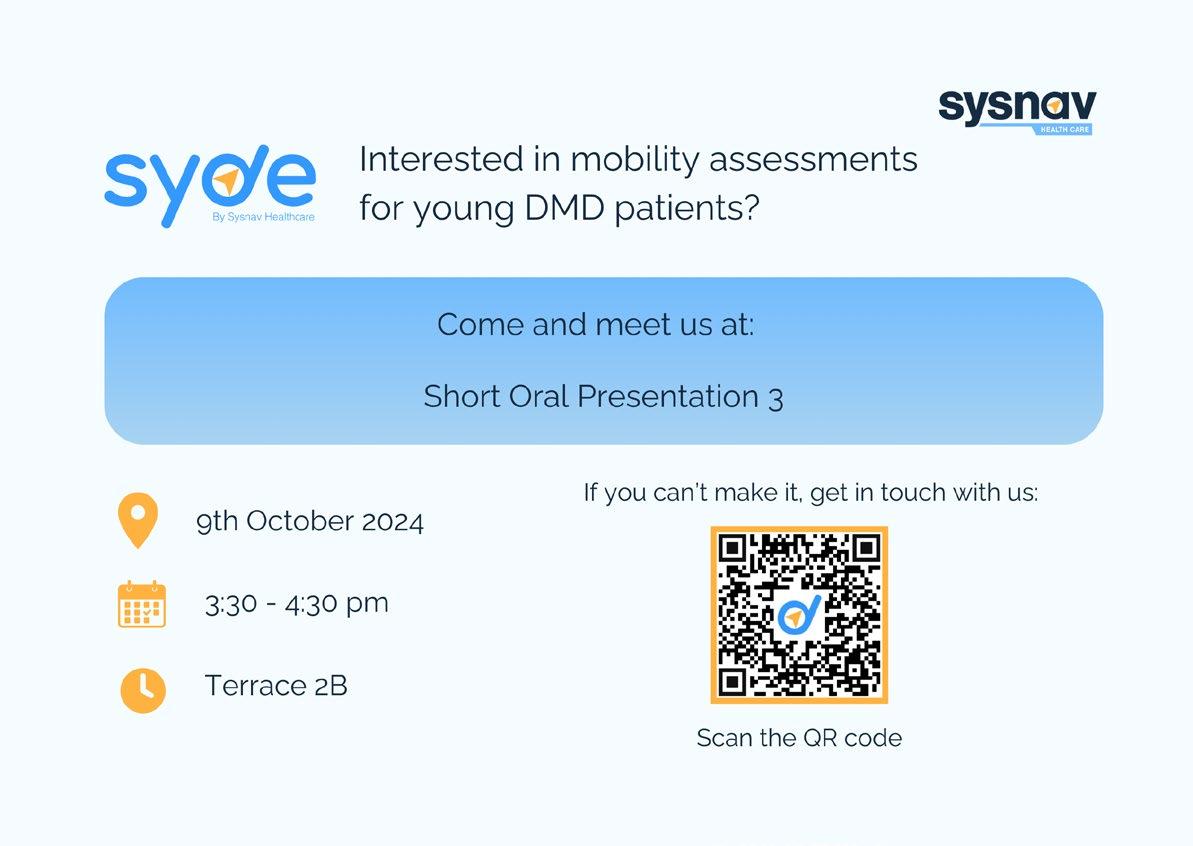

Scan the QR code below to view our current and future treatments striving to bring hope to people with DUCHENNE MUSCULAR DYSTROPHY.

NS Pharma is committed to innovations in heart and muscle health through regenerative medicines for the Duchenne Community
We are excited about our therapeutic offerings on the horizon.
Stop by booth #2 to speak to our team to see how we’re working to advance Duchenne muscular dystrophy care




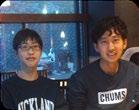











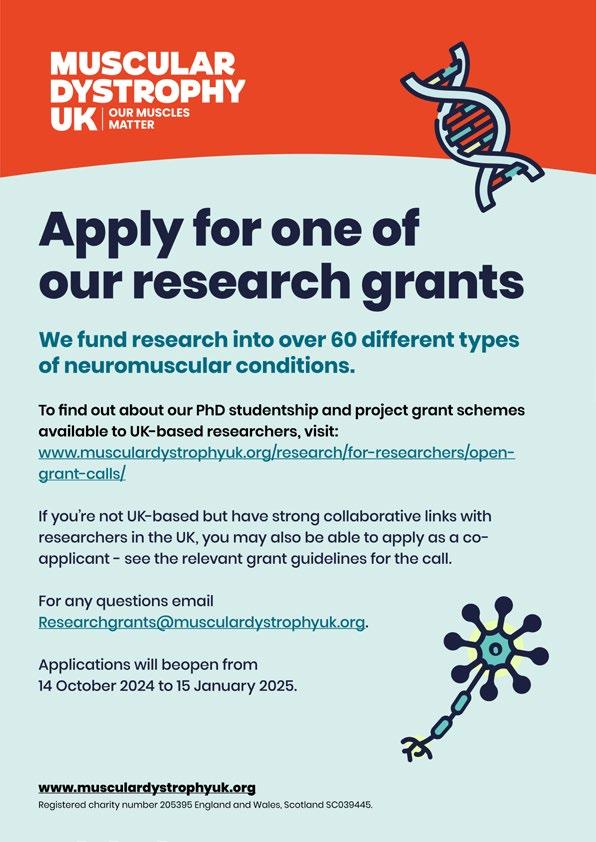


The RYR-1 Foundation is a proud sponsor of The 29th Annual Congress of the World Muscle Society!
Join Us in Connecting Patients and Healthcare Providers with Resources!
Patient Advocacy and Resources for All Include:
• The RYR-1 Foundation International Family Conferences (next one in July 2025)
• Clinical Care Guidelines (translated in 9 languages)
• Video Library
• A List of Providers Around the World Familiar with RYR-1-Related Diseases
• RYR-1-Related Diseases Medical Journal Articles
Contact Executive Director & Patient Liaison Lindsay Goldberg, BSN, RN at lindsay@ryr1.org
Access resources and learn more at www.ryr1.org
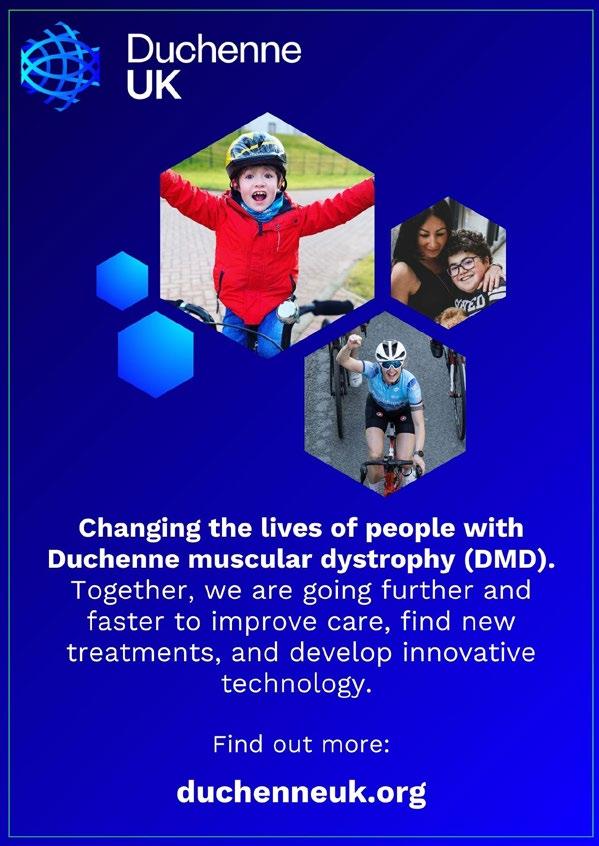






Come along to our in-person Myology Café Congress Hall Foyer 2 B (usually virtual) and find out about how to get involved:
Wednesday 9th October 2024 10:45-11:15 Meet the WMS EDI Committee
Thursday 10th October 2024 11:00-11:30
Meet the WMS Myology Developments Across the World Committee
Friday 6th October 2024 10:15-10:45 Meet the WMS Sustainability Committee


Facebook.com/WorldMuscleSociety instagram.com/WorldMuscleSociety linkedin.com/company/world-muscle-society x.com/WorldMuscleSoc




